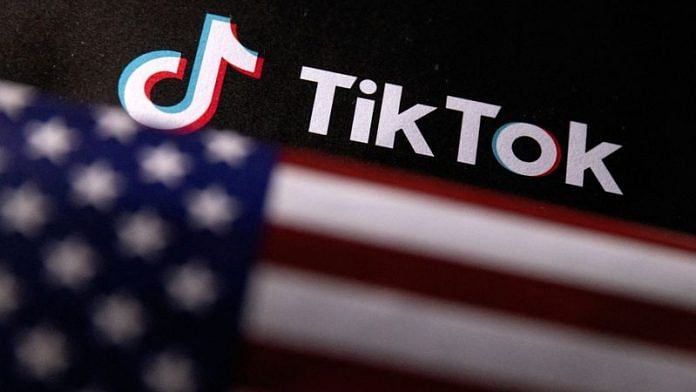New Delhi: The US House of Representatives has passed a landmark bill that could see the Chinese video app TikTok banned in America.
Lawmakers decided to give the social media giant’s parent company, ByteDance, six months to sell its controlling stake or the app would be blocked in the US.
This comes amid fears that the app could be used to influence the upcoming 2024 US Presidential elections scheduled for November.
On Wednesday, the lower chamber of the US Congress passed the “Protecting Americans from Foreign Adversary Controlled Applications Act” to avert threats posed by “foreign adversary controlled applications” such as TikTok.
If passed by the Senate, the US would join a growing list of countries that have taken action against the app such as India. Nations like Australia, UK, New Zealand and Belgium have banned government employees from downloading TikTok on their work devices.
TikTok is a video-sharing app popular among the younger generation with over one billion active users and over 150 million American users.
It was developed by ByteDance, a Chinese internet technology company, headquartered in Beijing. The company is required by Chinese law to make the app’s data available to the Chinese government on request.
What does the bill say?
On Wednesday, the “Protecting Americans from Foreign Adversary Controlled Applications Act” was passed overwhelmingly by a vote of 352 to 65.
The recently passed bill (H.R.7521) says ByteDance must divest its ownership of TikTok or face a nationwide ban. This means that if the bill is passed, ByteDance will have 180 days to find a buyer in the US to sell TikTok. If it fails to do so, the app will lose access to the American market. This means app stores like Google Play Store and Apple’s App Store would not be allowed to host the banned app.
The bill also calls for action against any subsidiary of the “successor” of ByteDance and TikTok.
If passed, this would also give the US President power to take similar action against a company controlled by a “foreign adversary” that he/she deems poses a “significant threat” to US national security.
The bill was introduced as a bipartisan legislation drafted by Republican Mike Gallagher and Indian-origin Democrat Raja Krishnamoorthi. Both lawmakers are on the House select committee on China. Back in December 2022, Krishnamoorthi had said it was imperative not to “allow hostile powers to potentially control social media networks that could be easily weaponised against us”.
Despite wanting to ban TikTok during his presidency, former US President Donald Trump has opposed recent legislation on this, arguing that blocking the social media app would benefit Meta (previously Facebook).
“Without TikTok, you can make Facebook bigger, and I consider Facebook to be an enemy of the people,” he told CNBC in an interview Monday.
Meanwhile, other senior Republicans, including House Speaker Mike Johnson and House Majority Leader Steve Scalise, have said the bill was necessary for America’s national security.
TikTok’s rocky road in US
Despite the fact that half the US population and several lawmakers use TikTok, the popular video-sharing app has been under the scanner of authorities for over a year. The FBI has for years raised concerns that TikTok could pose a risk to national security.
A recent report by US-based think tank Center for Strategic and International Studies (CSIS) pointed out that even if TikTok has been screened and “declared clean” by an app store, users are voluntarily downloading Chinese software into their devices for which they have “minimal or no insight”.
In 2020, TikTok hired American CEO Kevin Mayer, who was previously a top executive at Disney, in a bid for the app to look distinct from its parent company. Mayer resigned four months after assuming the role, at a time when the Trump administration was mounting pressure on the Chinese-owned app.
On Thursday, in a video statement, TikTok’s current CEO and Singaporean businessman Shou Zi Chew criticised the “disappointing” vote in the US House of Representatives, urging Americans to protect their “constitutional rights”.
Our CEO Shou Chew's response to the TikTok ban bill: pic.twitter.com/7AnDYOLD96
— TikTok Policy (@TikTokPolicy) March 13, 2024
There are also mounting fears that the popular video-sharing app could influence the upcoming 2024 US Presidential elections.
On Tuesday, US Director of National Intelligence Avril Haines said it couldn’t be ruled out that China would exploit TikTok to influence the upcoming polls.
US President Joe Biden has said he would sign the bill should it land on his desk. His administration has also provided “technical assistance” to the drafters of the bill.
(Edited by Tikli Basu)
Also read: Biden says he would sign TikTok crackdown, Trump raises concerns



